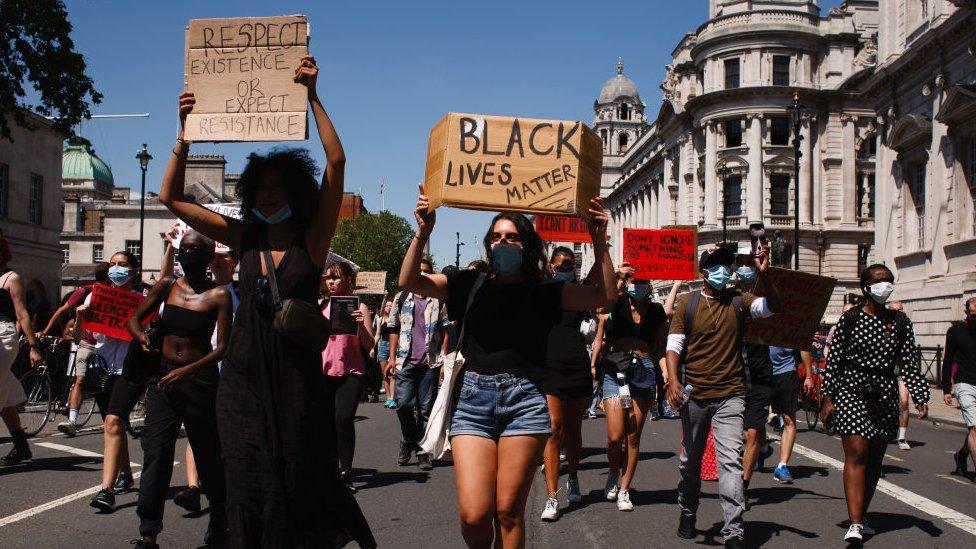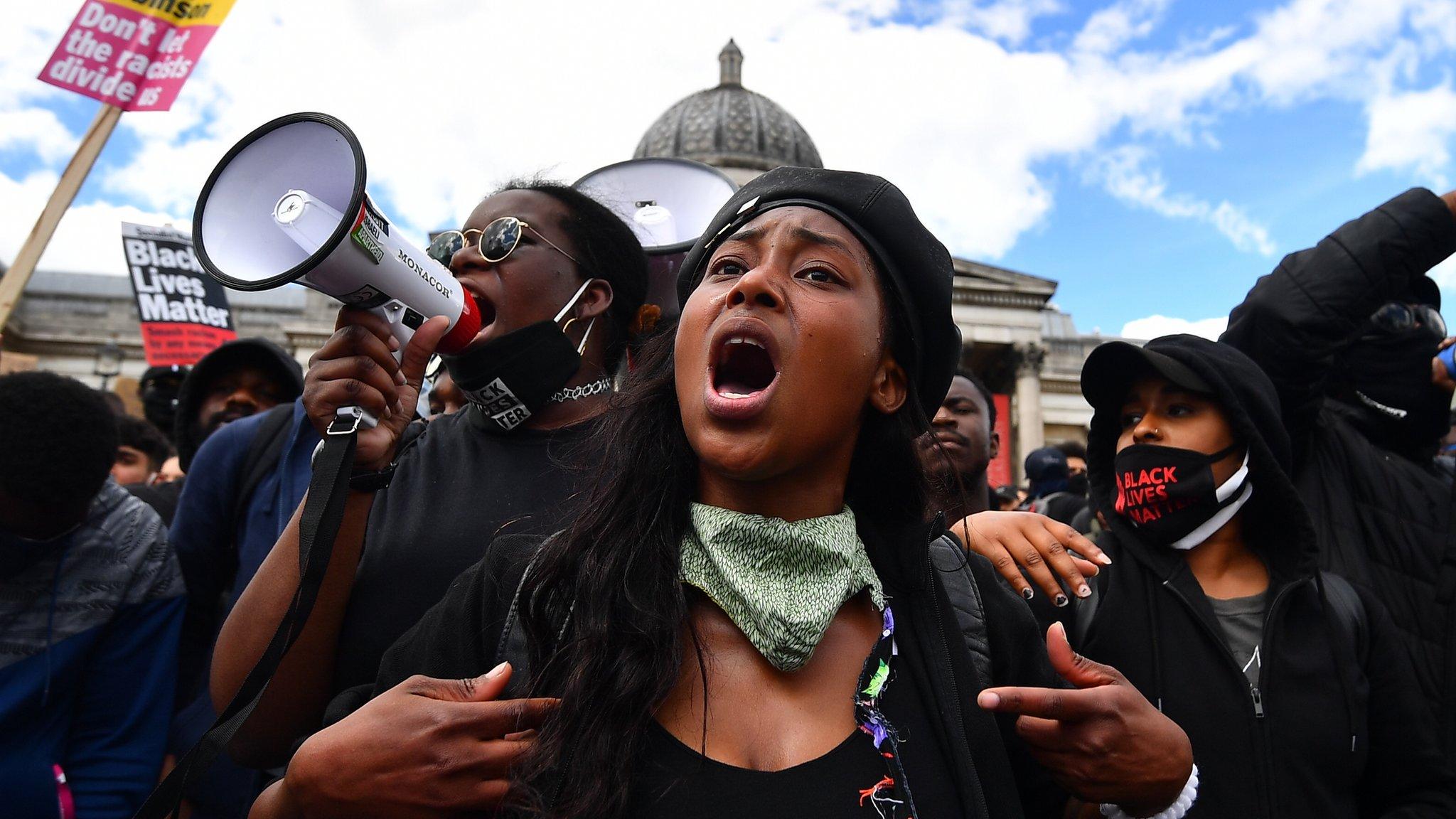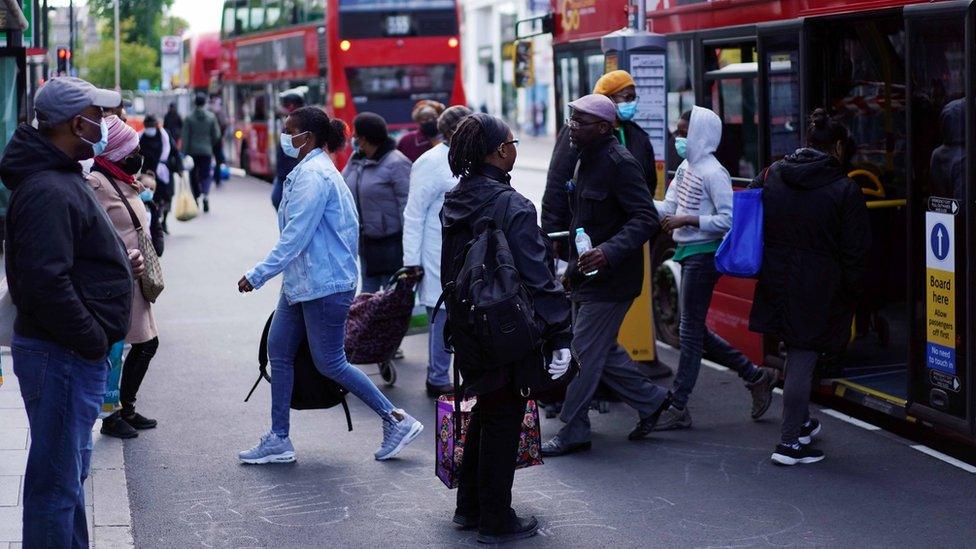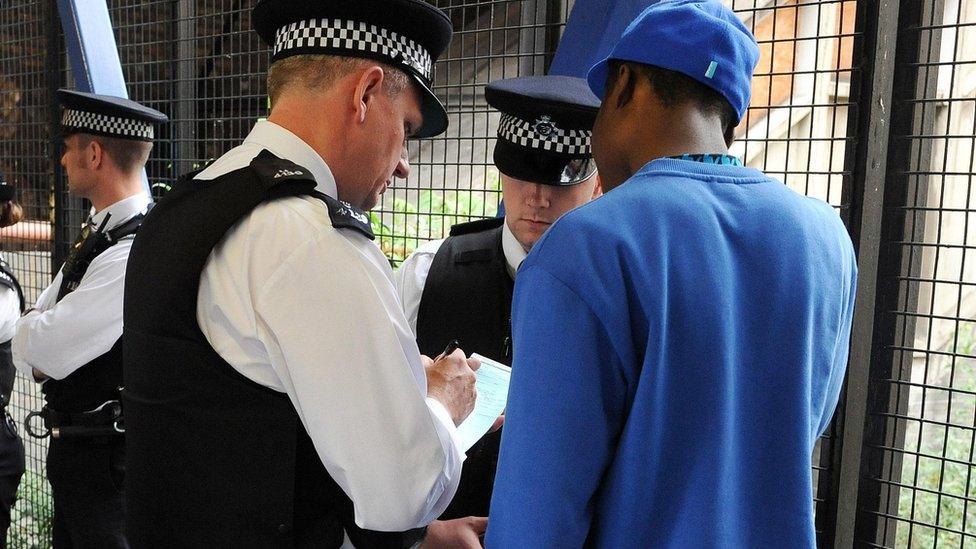Ethnic minorities feel UK police are racially biased, report says
- Published

Nearly three-quarters of respondents said they support the recent Black Lives Matter protests
Two-thirds of black and minority ethnic people feel there is bias against them within police forces, a survey has found.
Four out of five respondents of black and Bangladeshi heritage felt there was bias, and about half of those of Chinese and Indian backgrounds.
But the Hope Not Hate research suggests most do not feel the issue is systemic.
The National Police Chiefs' Council said it was working "to address racial inequalities in policing".
The charity Hope Not Hate surveyed about 1,000 adults in Britain between 3 and 10 July, in the aftermath of George Floyd's death in the US and amid anti-racism protests in the UK.
According to the report, some 64% of people of ethnic minority in Britain agreed that the police as a whole were good, and that any issues were down to a few individuals within forces. Black communities were slightly lower (58%) but still a majority.
The research said this "suggests a much more nuanced approach than either the blanket praise or condemnation that dominates the public debate".
Meanwhile, three quarters of black people, 71% of Bangladeshi people and 53% of Indian respondents feel they are dealt with more severely in the courts.
The research also revealed widespread anger about the government's handling of the coronavirus pandemic, and feelings of political alienation.
A National Police Chiefs' Council (NPCC) spokesman said it was "crucial" to retain the trust of all communities "so that we can work with them to fight crime and keep people safe".
He added: "We have recently invested significant time and resources into working out how we can better engage with communities of all backgrounds.
"The NPCC and the College of Policing are developing a plan of action to address racial inequalities in policing."
'Increase trust'
Det Insp Andy George, interim president of the National Black Police Association, welcomed the results of the survey, which he said confirmed their concerns around trust and confidence in UK policing.
He said: "Now is the time to acknowledge the evidence produced in this report and build long-term strategies to increase trust and confidence."
Respondents were also asked about their experiences during the coronavirus pandemic, with more than half of respondents (57%) saying the government had not done enough to protect BAME communities from Covid-19.
The report argues that action to address concerns must not wait, given the imminent threat of a second wave.
Labour MP Dr Rosena Allin-Khan, quoted in the report, said BAME communities had been treated as "cannon fodder" in the war against coronavirus, adding: "These people's lives are not, and should not, have been dispensable."
Chinese people were most likely to list Covid-19 as one of issues most important to them, which the report said might reflect the impact of anti-Chinese sentiment.
Also in the report:
More than half of respondents said they have witnessed or experienced racist comments being made in public, racism on social media, racism in the press or racial abuse, in the past 12 months
Almost three-quarters (73%) said they support the recent Black Lives Matter protests, but there were fears that they might prompt a backlash from sections of the white population
About the same proportion (72%) agreed that black history, including topics such as migration, belonging and empire should be compulsory in schools
Just under half (48%) said public figures could be admired for their achievements, even if they also held racist views, with a quarter disagreeing with this
Some 65% felt statues of slave traders should be removed from public squares and put into museums
But 60% felt the ensuing debate has distracted from important discussions about racism
And there was strong support for calls that the government should pay reparations to the descendants of black slaves

SUMMER PLANS CANCELLED?: Joe Wicks is here for you - bringing you sunshine in a podcast
GCSE AND A LEVEL STRESS: How to deal with exam result emotions

- Published15 June 2020

- Published5 August 2020

- Published30 July 2020
